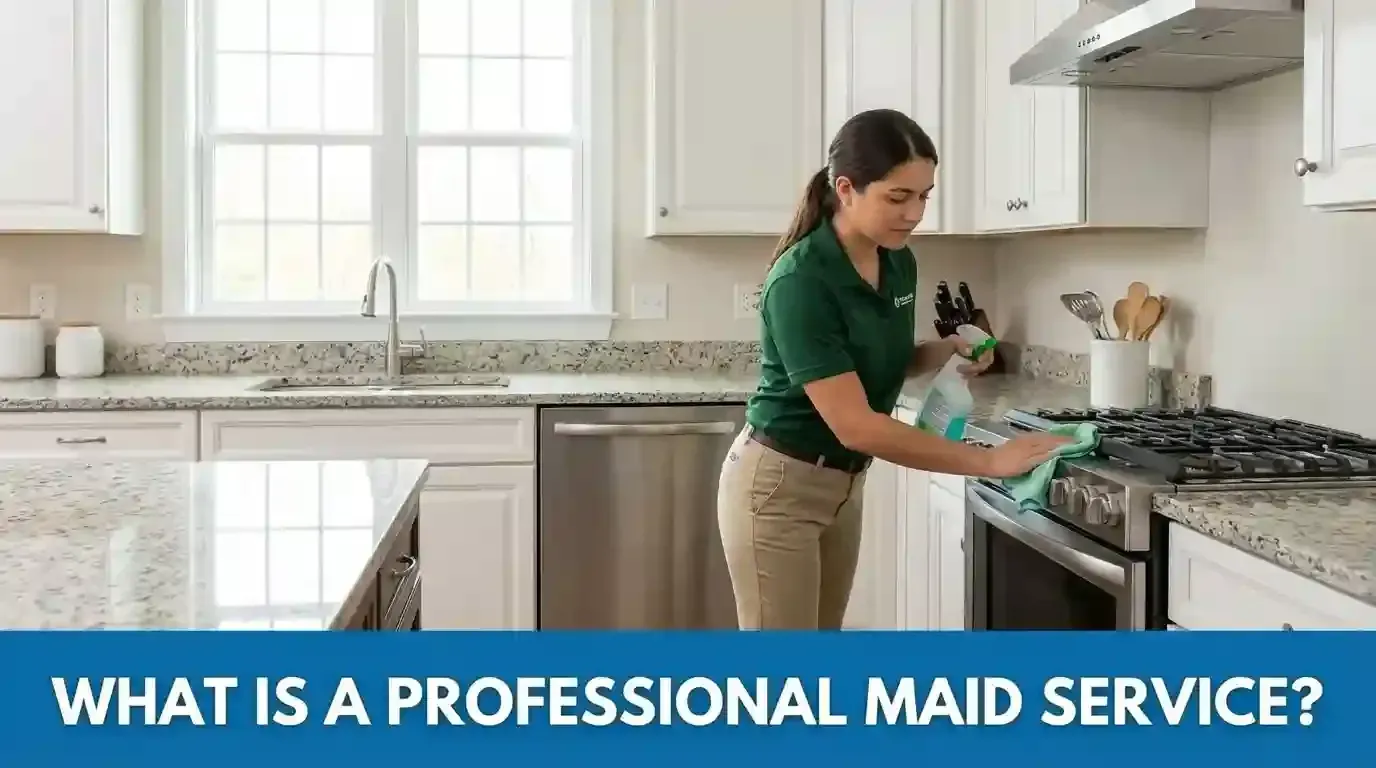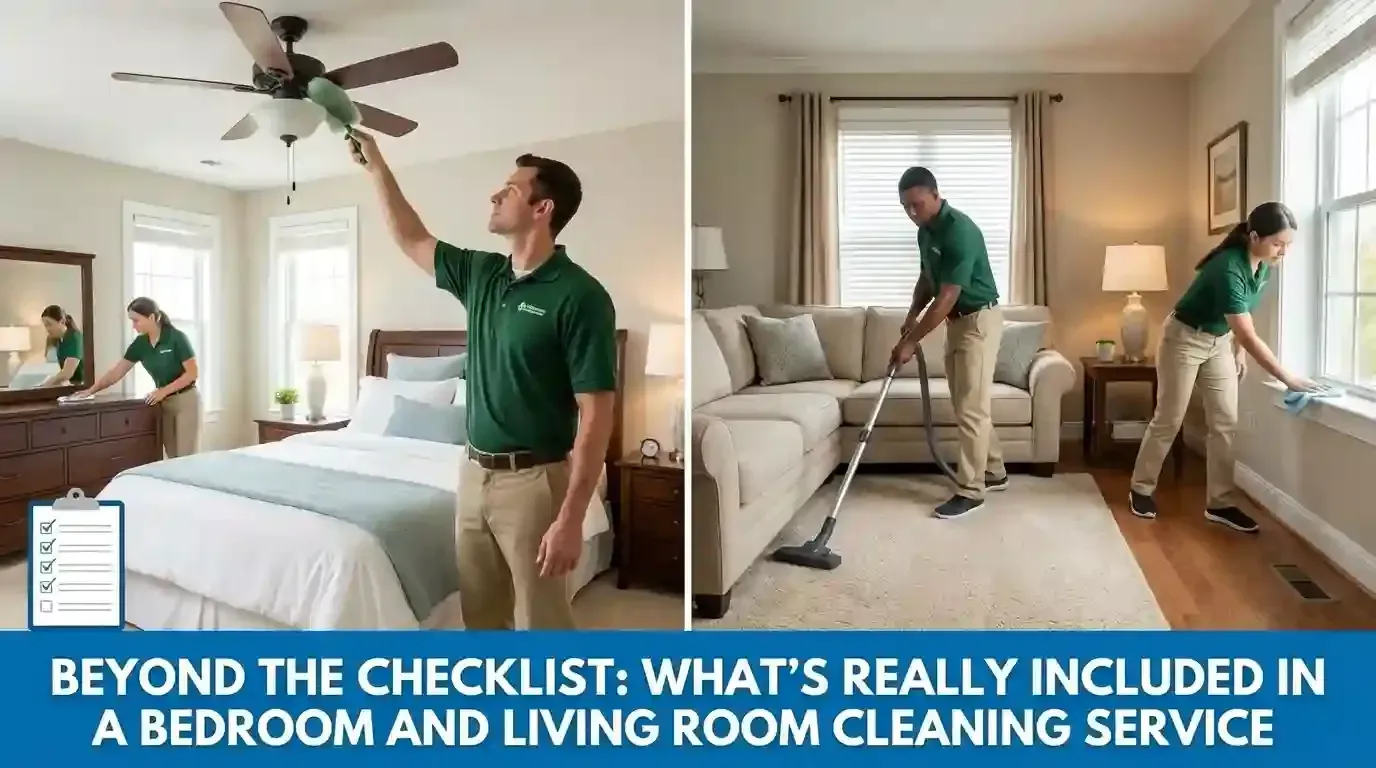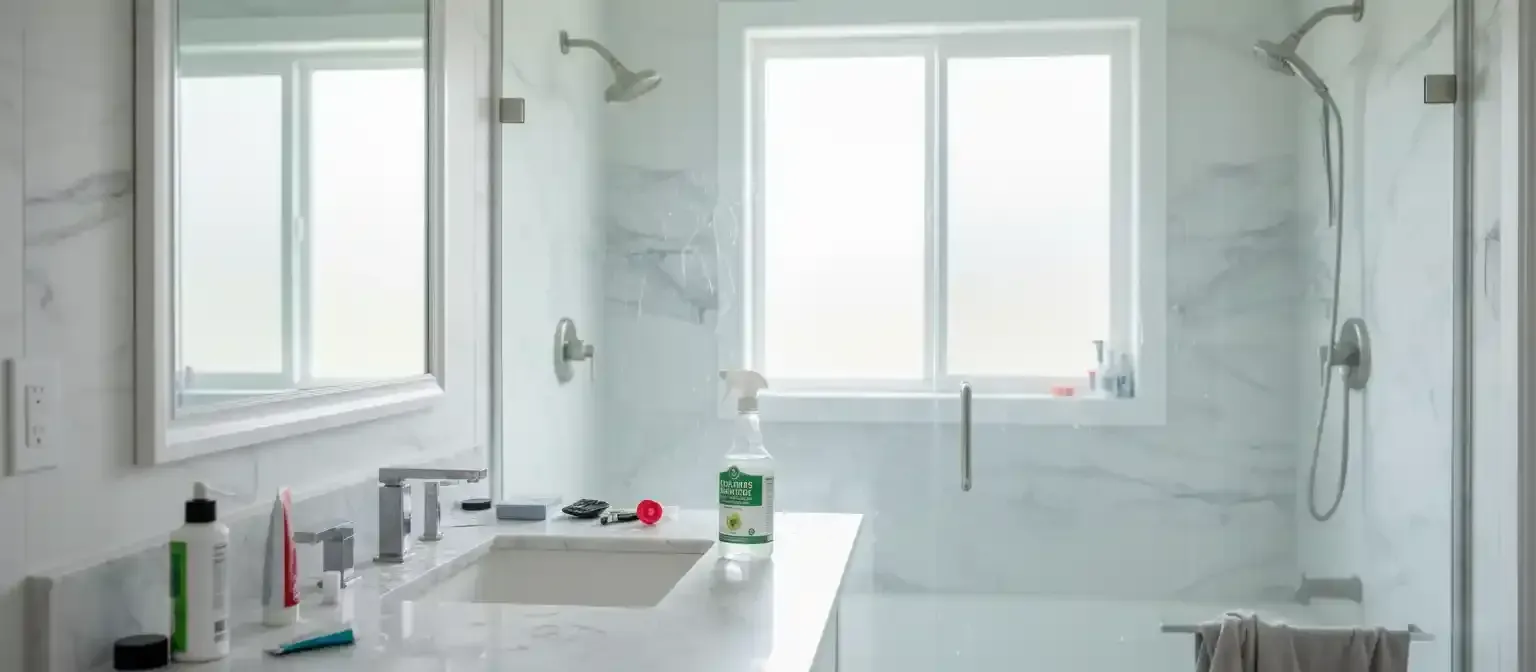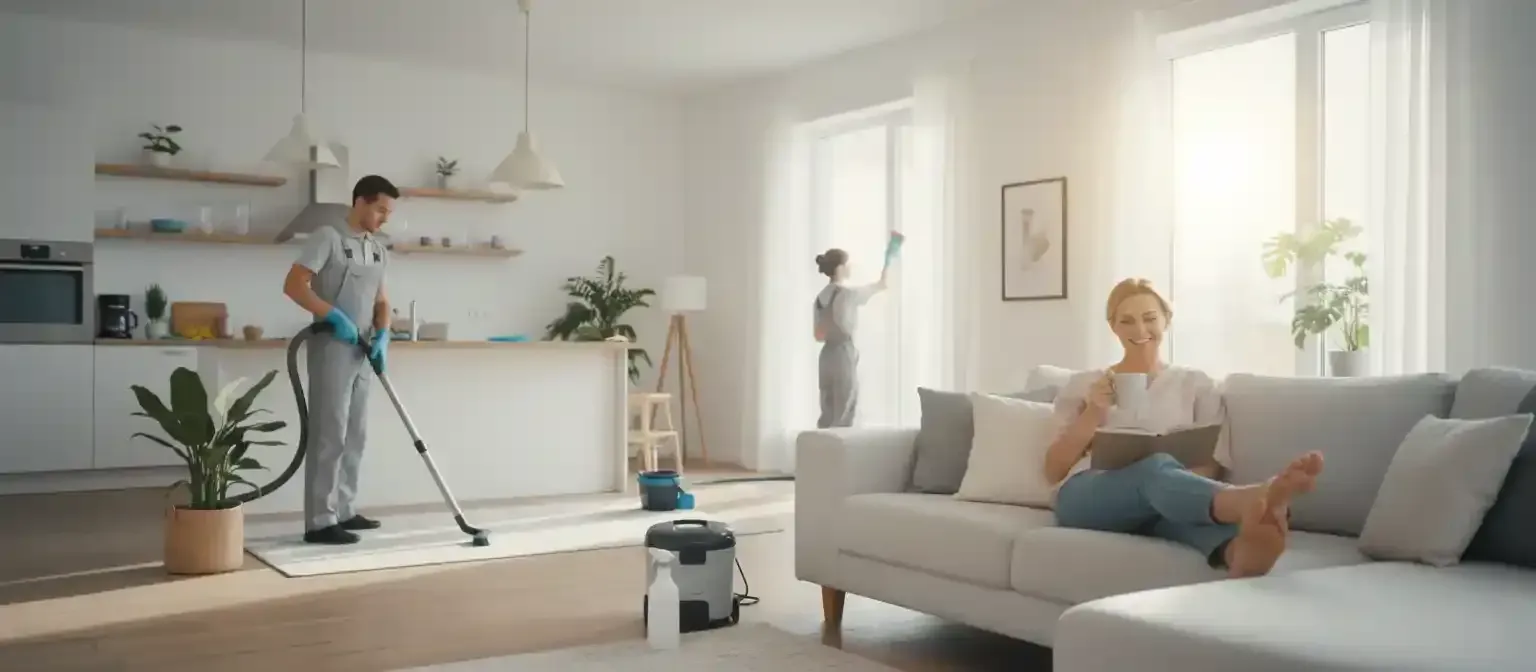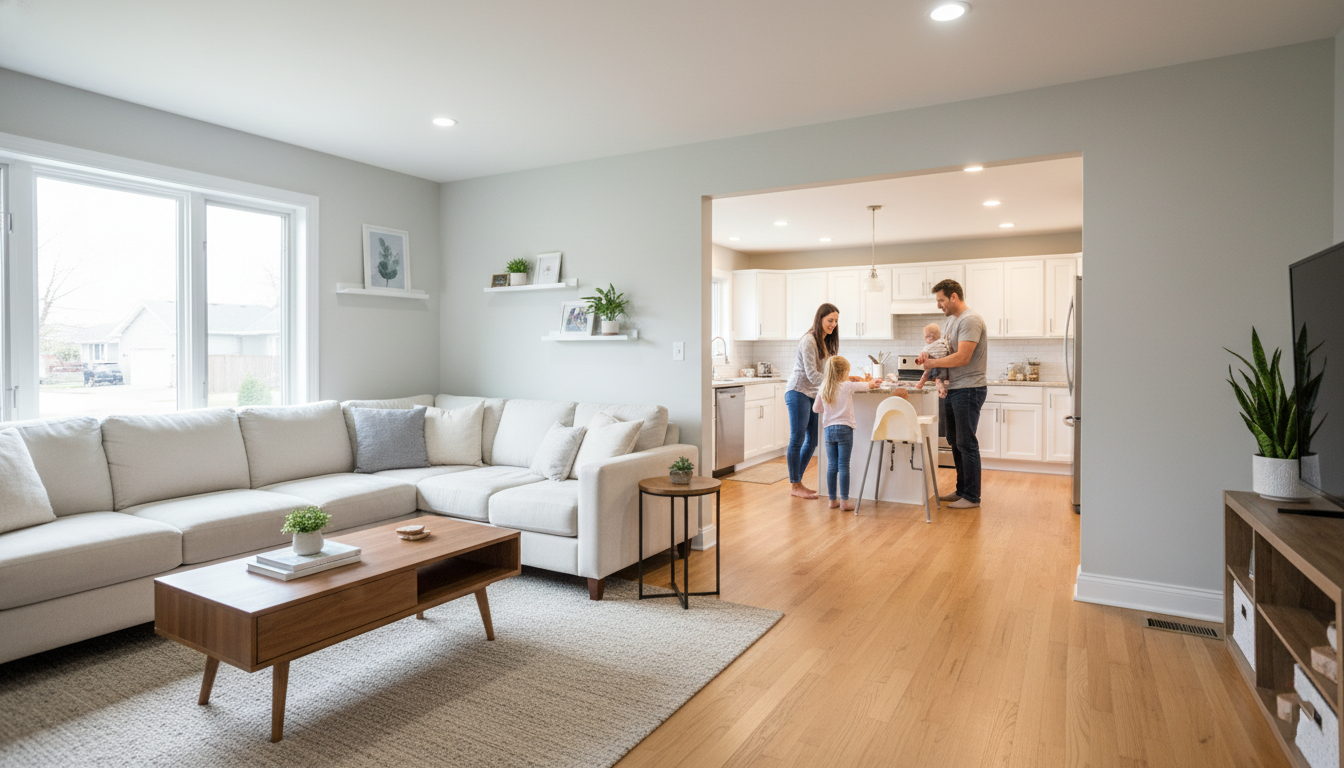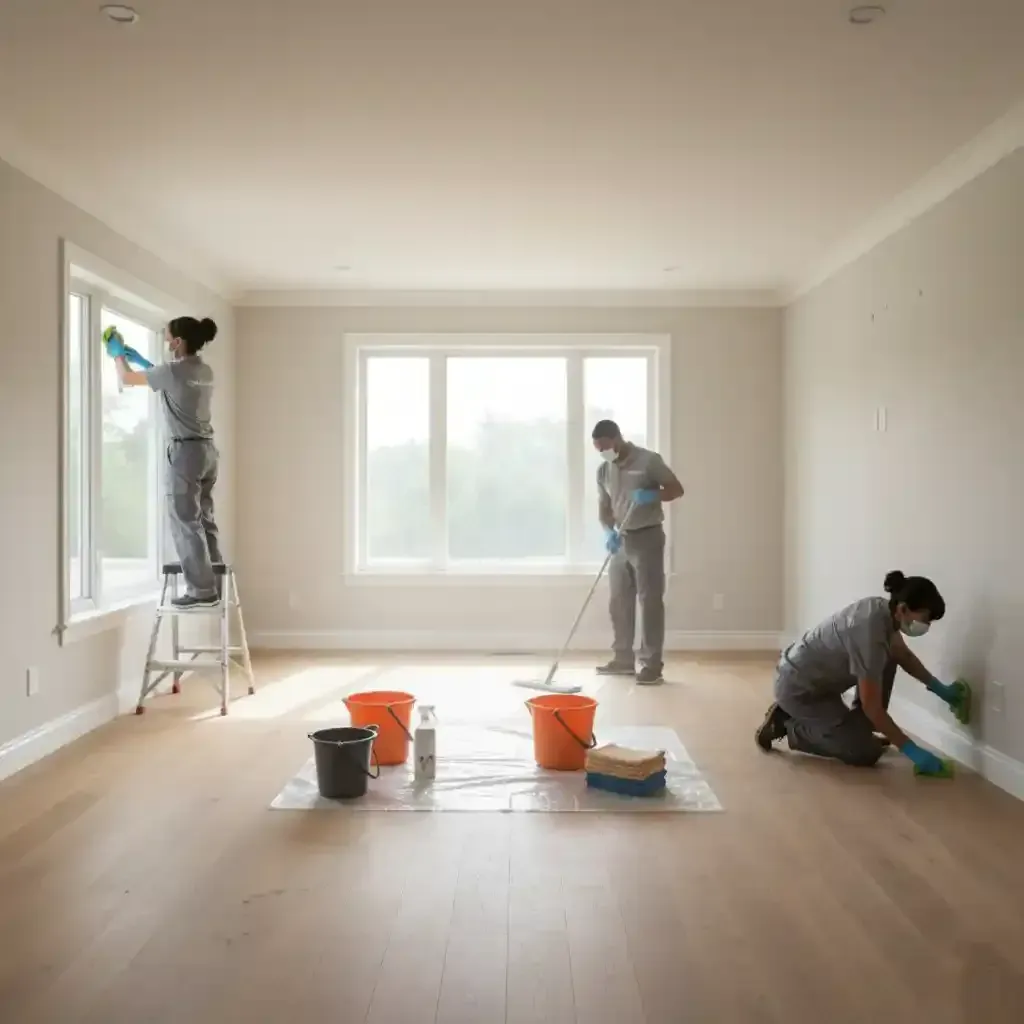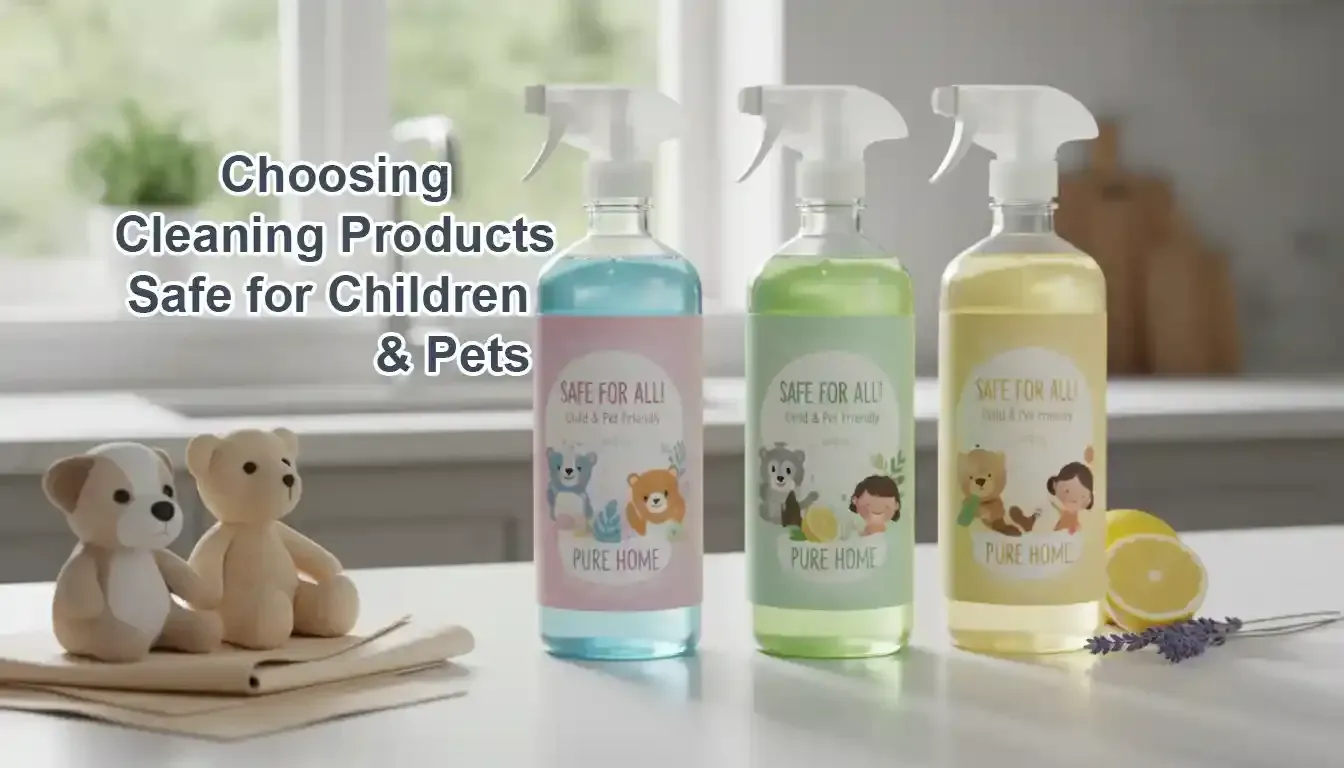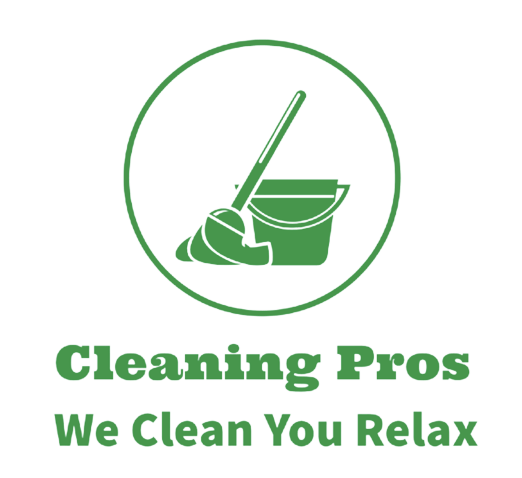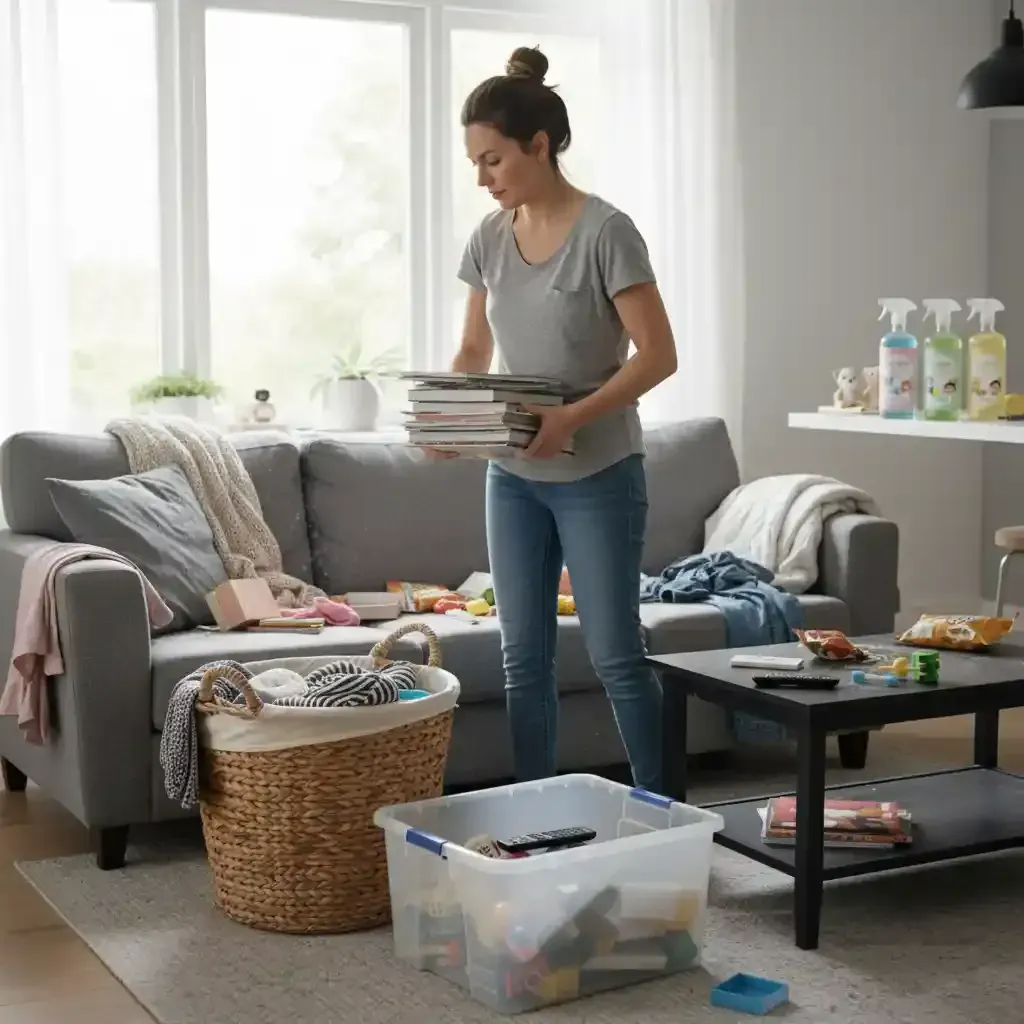How recurring house cleaning strategically improves your health (and it’s not how you think)
Effective recurring house cleaning offers profound health benefits that extend far beyond a sparkling surface. Its primary value isn't in creating a sterile, germ-free zone—a common misconception—but in systematically managing your home's unique ecosystem. This strategic approach reduces harmful allergens and pathogens while significantly lowering the cognitive load and chronic stress that weaken your body's natural immune defenses, leading to improved physical and mental well-being.
The great misunderstanding: Rethinking 'clean' and the hygiene hypothesis
Many of us grew up with the idea that a healthier home is a more sterile home. This has led to a widespread fear of being "too clean," fueled by headlines suggesting our obsession with sanitation is causing a rise in allergies and autoimmune disorders. This concept is rooted in a misinterpretation of a scientific idea known as the "Hygiene Hypothesis."
The original theory was quite specific. The 'hygiene hypothesis' was originally formulated to propose that a cause of the rise in atopic disorders could be a lower incidence of infection in early childhood, transmitted by unhygienic contact with older siblings. It wasn't about dust bunnies or a clean kitchen counter. It was about the lack of exposure to a wide range of once-common microbes that helped train the developing immune system. Research now confirms that the increase in allergic disorders does not correlate with the decrease in infection with pathogenic organisms, nor can it be explained by changes in domestic hygiene. Our modern lifestyles, with less time spent outdoors and in diverse natural environments, are the more likely culprits.
In fact, a scientific consensus is developing that decreased exposure to certain microbial species, important for developing immunoregulatory mechanisms, is a result of fundamental lifestyle changes, not simply 'being too clean'. A targeted, recurring cleaning schedule doesn't rob your body of this necessary exposure. Instead, it systematically removes the *actual* threats lurking in the modern home environment: concentrated pockets of dust mite allergens, mold spores, pet dander, and chemical pollutants that actively trigger illness and inflammation.
From sterilization to strategic management: A smarter approach to home health
The goal of a modern, health-focused cleaning plan isn't a futile war on all bacteria. It's to strategically lower the concentration of specific antagonists in your home's ecosystem. When the "load" of these irritants is consistently kept below your body's trigger threshold, your immune system can function properly instead of being in a constant state of high alert.
Reducing allergen load: Dust mites and pet dander
For millions of people, a stuffy nose, itchy eyes, and respiratory distress are daily realities. The primary culprits are often invisible. Dust mites, microscopic creatures that feed on dead skin cells, produce waste particles that are a potent allergen. Similarly, pet dander is a common trigger. Effective, recurring cleaning is one of the most powerful tools for professional house cleaning for asthma patients and allergy sufferers. Regular, detailed dusting and vacuuming with HEPA-filter vacuums don't just move dust around; they physically remove these allergen particles from your environment, offering consistent relief and supporting better respiratory health.
Preventing mold and mildew growth
Bathrooms, kitchens, and basements are prime breeding grounds for mold and mildew. These fungi release spores into the air that can cause allergic reactions and respiratory problems. A dirty house can certainly make you sick, and mold is often a key reason why. Preventing mold and mildew with regular cleaning is a proactive health measure. A professional service ensures that grout is scrubbed, hidden corners are wiped down, and ventilation areas are kept clear, disrupting the moist, undisturbed environment mold needs to thrive.
Clearing the air: Volatile organic compounds (VOCs) and indoor pollutants
Indoor air quality can be significantly worse than outdoor air. Furnishings, paints, and even some cleaning products release Volatile Organic Compounds (VOCs) into the air. These airborne pollutants can cause everything from headaches to long-term health issues. Dust particles act like tiny sponges, absorbing these VOCs and other pollutants. Therefore, a key benefit of the impact of regular vacuuming and dusting on health is the physical removal of these trapped chemicals, creating a healthier living space for your family.
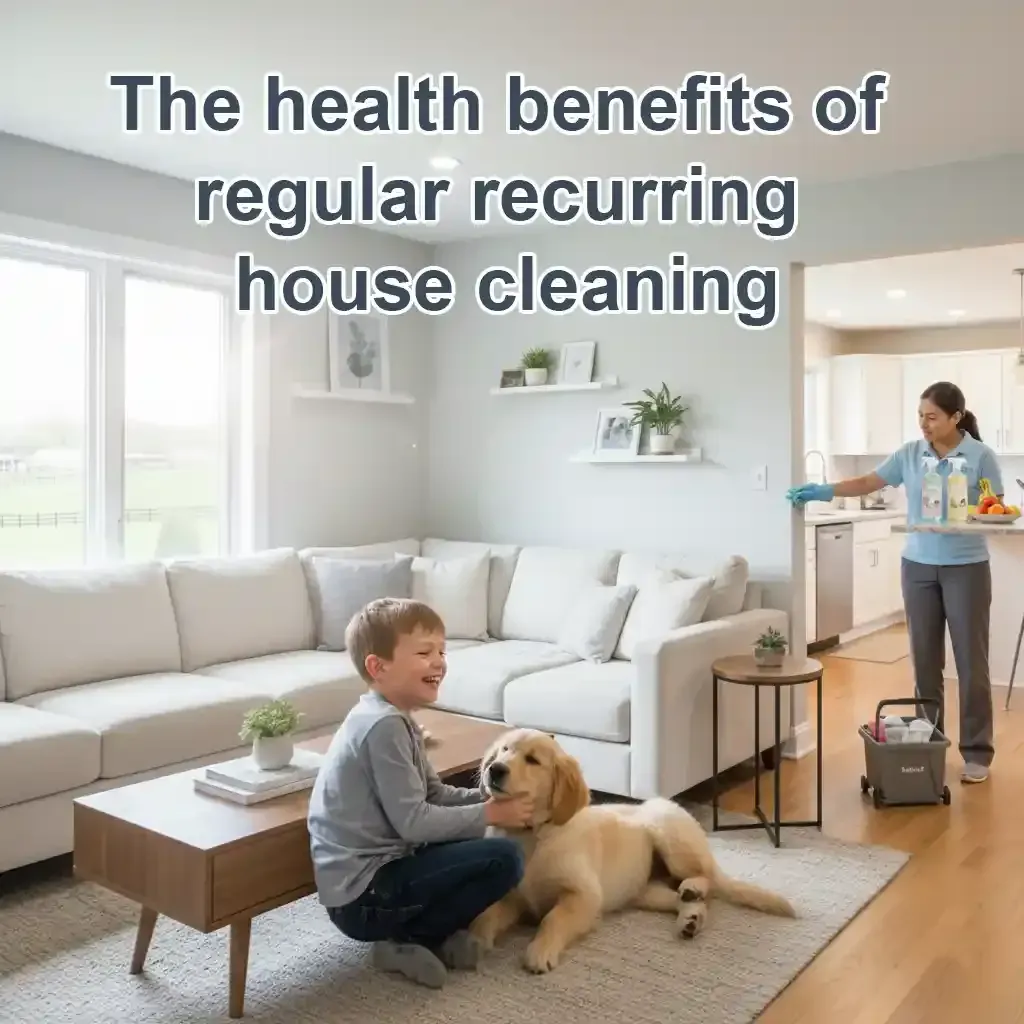
The cortisol connection: How a clean home calms your mind and strengthens your body
The health benefits of a clean home go far beyond the physical. The state of our living space has a direct and measurable impact on our mental and emotional well-being, particularly on our stress levels. When we are surrounded by clutter and disorder, our brains perceive it as unfinished business, triggering a continuous, low-grade stress response.
This response releases cortisol, the body's primary stress hormone. While useful in short bursts, chronically elevated cortisol levels can suppress the immune system, disrupt sleep, and contribute to anxiety and depression. The well-documented link between clutter and depression is partly due to this physiological process. A cluttered space bombards our senses, making it difficult to relax, focus, and find rest.
This is why one of the most significant psychological benefits of a clean house is stress reduction. Walking into an organized, clean home signals to your brain that things are under control. This lowers cortisol, allowing your immune system to function optimally. In essence, ways a clean home boosts your immune system are both direct (removing pathogens) and indirect (reducing the stress that weakens it). A recurring cleaning service creates a consistently calm environment, breaking the cycle of stress and chaos that a perpetually messy home can create.
Beyond the physical: The cognitive benefits of outsourcing your cleaning schedule
Every single task on your to-do list, from "scrub the shower" to "dust the blinds," occupies a small amount of mental bandwidth. When your list of domestic chores is endless, it creates a significant cognitive load. This is the background mental chatter that depletes your energy and makes it harder to focus on work, family, and personal growth.
Hiring a recurring maid service is more than just buying back time; it's outsourcing a whole category of domestic decision-making. You no longer have to think about *when* to clean, *what* to clean, or *if* you have the right supplies. This liberation of mental energy is a powerful form of stress relief. It improves concentration, especially for those with a tidy home office, and allows for greater productivity.
This reclaimed time and mental space can then be reinvested into activities that genuinely promote health: exercising, preparing nutritious meals, spending quality time with loved ones, or simply getting adequate sleep. The connection between a clean home and better sleep is clear; a decluttered bedroom with good air quality is more conducive to rest. Outsourcing house cleaning for more family time isn't an extravagance; it's a strategic investment in your family's overall health and happiness.
Comparing approaches to home hygiene
Understanding these different facets of "clean" helps clarify the best approach for your home.
The Sterile/Over-Sanitized Environment
This approach is driven by the goal of eliminating all microbes. It often involves the frequent use of harsh disinfectants like bleach on all surfaces. While sanitizing high-touch surfaces (doorknobs, light switches) is valuable, trying to sterilize an entire home is a losing battle. It's impractical, can expose your family to harsh chemicals, and misses the larger point that our immune systems benefit from exposure to a diverse range of harmless microbes.
The Managed Home Ecosystem
This is the strategic, modern approach. The goal is not eradication but consistent reduction of specific health threats. It focuses on physical removal through methods like HEPA filtration vacuuming, microfiber dusting, and targeted, non-toxic cleaning of kitchens and bathrooms. This maintains a healthy balance, reducing the load of allergens, mold spores, and harmful bacteria without declaring war on the entire microbial world. This is the philosophy behind professional recurring cleaning services.
The Mental & Cognitive Well-being Focus
This perspective views cleaning as a tool for a larger goal: a calm and functional mind. Here, the primary benefit isn't just the absence of dust, but the absence of stress. The value is measured in reclaimed time, reduced cognitive load, and the emotional lift of living in an orderly environment. This approach recognizes that outsourcing the task provides a compounding return in mental clarity and overall life quality.
Key factors in choosing a path forward
Cost vs. Value (Time Reclamation & Stress Reduction)
A common question is, "is a professional cleaning service worth it for your health?" When viewed purely as a cost, it can seem like a luxury. But when framed as an investment, the value becomes clear. Calculate the hours you spend cleaning each month and assign a value to that time. What could you do with an extra 8-12 hours? The reduction in chronic stress and decision fatigue, while harder to quantify, provides immense long-term health advantages.
Trust and Professionalism (Insurance, Fair Wages)
Entrusting someone with your home requires a high level of confidence. A professional service should be fully insured and bonded to protect you and your property. Furthermore, choosing a company that pays its employees a fair, living wage is a crucial consideration. This ensures a motivated, consistent, and professional team while also investing back into the health of your local community's economy.
Health Impact (Allergen Reduction & Mental Load)
The ultimate factor is the direct impact on your well-being. A bi-weekly cleaning schedule is often ideal for maintaining low levels of dust and allergens. For those with severe allergies, asthma, or for creating a sanitary environment for newborns, weekly service may be more appropriate. Consider the benefits of non-toxic cleaning services for health, which use products that clean effectively without introducing harmful chemicals into your home's air.
Common questions on home cleaning and health
How often should you clean your house for health reasons?
While the "average" person may do a light clean weekly and a deep clean monthly, the optimal frequency depends on your household. Homes with pets, young children, or allergy sufferers benefit most from a weekly or bi-weekly professional cleaning to keep allergens and germs at bay. For a single adult in a small apartment, a thorough monthly deep cleaning might suffice to maintain a healthy environment.
What are some effective cleaning strategies for maintaining a home?
For day-to-day tidiness between professional cleanings, many people find success with simple rules. The '20-minute rule' involves setting a timer and tackling one area of the house for just 20 minutes each day. This prevents tasks from becoming overwhelming. Similarly, the '1% rule of cleaning' is about making small, incremental improvements daily. Instead of a massive decluttering project, you focus on getting rid of just a few items or organizing one small drawer each day. These are great maintenance habits, and a recurring service can then handle the deeper, more time-consuming work.
Can regularly cleaning my room truly improve my health?
Absolutely. On a micro level, regularly cleaning a single room, like your bedroom, directly contributes to better health. It reduces your exposure to dust mites and allergens that accumulate in bedding and on surfaces, which can significantly improve sleep quality. A clean, organized room also provides a sanctuary from the stress of the day, lowering cortisol and promoting mental rest, which in turn supports your immune system.
Making the right choice for your needs
Ultimately, the best approach is the one that aligns with your specific priorities and lifestyle.
- For The Busy Professional/Dual-Income Family: Your most limited resource is time and mental energy. The primary value of a recurring cleaning service is reclaiming those precious hours and offloading the cognitive load of home management. The health benefit comes from reduced stress and more time for family, exercise, and rest.
- For The Health-Conscious Homeowner: Your focus is on creating the healthiest possible physical environment. Look for a professional service that specializes in allergen reduction, uses HEPA-filter vacuums, and offers certified non-toxic cleaning options. Your investment is a direct strategy for improving respiratory health and reducing your family's exposure to pollutants.
- For The Community-Minded Consumer: You believe in the power of local investment. Your best choice is a professional, locally-owned company that is insured, bonded, and transparent about paying its employees a living wage. By hiring them, you are not only improving your own health but also contributing directly to the economic well-being and stability of your community.
Investing in a recurring cleaning service is an investment in your holistic health. By strategically managing your home’s environment to reduce allergens and pollutants, you’re supporting your physical body. By outsourcing the work and worry, you’re supporting your mental and emotional well-being. Here at Cleaning Pros Lexington KY, we are dedicated to providing a professional, reliable service that delivers peace of mind and a healthier home. Our experienced, fully-insured team uses a strategic approach to create a consistently clean space, allowing you to focus on what matters most. For a free, personalized quote and to discuss a plan that fits your family's needs, contact our expert team today.
